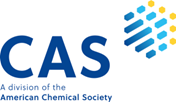The Role of Diet and Lifestyle Modifications in the Management of Esophageal Reflux Disease in local population
Efficacy of Combined Pharmacological and Non-Pharmacological Therapies
DOI:
https://doi.org/10.69750/dmls.01.06.059Keywords:
Gastroesophageal Reflux, Diet, Lifestyle, Pharmacological Treatment, Esophagitis, Weight Loss, Smoking Cessation, Proton Pump Inhibitors, Endoscopy, AntacidsAbstract
Background: Gastroesophageal reflux disease (GERD) is a very common medical complication connected with regurgitation of the gastric contents into the esophagus which caused heartburn and esophageal irritation.
Objectives: The objective of this research was to assess practicality of diet and lifestyle changes in the management of GERD in local population. Pharmacotherapy remains the mainstay of management of GERD; however, diet and lifestyle changes have emerged as popular non-pharmacological interventions.
Methodology: An observational study was conducted on 200 patients with GERD. Participants were divided into two groups: Group A received standard pharmacological treatment, while Group B received a structured diet and lifestyle modification program in addition to pharmacological management. Lifestyle changes included avoiding heartburn-triggering foods such as spicy meals, caffeine, and fatty foods, along with weight reduction, smoking cessation, and increased sleeping height. The effectiveness of the treatments was assessed based on symptom severity, endoscopic findings, and inflammatory biomarkers over 12 months. SPSS version 26.0 was used for statistical analysis, employing paired and independent t-tests for continuous variables and chi-square tests for categorical data. Results were considered significant at p ≤ 0.05.
Results: Group B showed a significant reduction in symptom severity (35%) compared to Group A (20%) (p < 0.001). Endoscopy revealed better healing in Group B (70% vs. 50%, p = 0.02). Weight loss and smoking cessation positively influenced outcomes.
Conclusion: Diet and lifestyle modifications, combined with medical management, positively impact GERD outcomes in the local population.
Downloads
References
Kröner PT, Cortés P, Lukens FJ. The medical management of gastroesophageal reflux disease: a narrative review. J Prim Care Community Health. 2021;12:21501327211046736. doi:10.1177/21501327211046736
Boulton KHA, Dettmar PW. A narrative review of the prevalence of gastroesophageal reflux disease (GERD). Ann Esophagus. 2021;5. doi:10.21037/aoe-20-80
Maqbul MS, Alshehri WAA, Bajubair AM, Saleh Mohamed ME, Aljohani SH, Alnajjar DB, et al. Gastro-esophageal reflux disease among the urban population of Saudi Arabia. Gastroenterol Endosc. 2024;2(3):121-30. doi:10.1016/j.gande.2024.07.004
Chang CH, Chen TH, Chiang LL, Hsu CL, Yu HC, Mar GY, et al. Associations between lifestyle habits, perceived symptoms and gastroesophageal reflux disease in patients seeking health check-ups. Int J Environ Res Public Health. 2021;18(7):3808. doi:10.3390/ijerph18073808
Valentini DF Jr, Fernandes D, Campos VJ, Mazzini GS, Gurski RR. Dietary weight loss intervention provides improvement of gastroesophageal reflux disease symptoms—A randomized clinical trial. Clin Obes. 2023;13(1):e12556. doi:10.1111/cob.12556
Özenoğlu A, Anul N, Özçelikçi B. The relationship of gastroesophageal reflux with nutritional habits and mental disorders. Hum Nutr Metab. 2023;33:200203. doi:10.1016/j.hnm.2023.200203
Khan M, Shah K, Gill SK, Gul N, J JK, Valladares V, et al. Dietary habits and their impact on gastroesophageal reflux disease (GERD). Cureus. 2024;16(7):e65552. doi:10.7759/cureus.65552
Gu C, Olszewski T, King KL, Vaezi MF, Niswender KD, Silver HJ. The effects of modifying amount and type of dietary carbohydrate on esophageal acid exposure time and reflux symptoms: a randomized controlled trial. Am J Gastroenterol. 2022;117(10):1655-67. doi:10.14309/ajg.0000000000001889
Quach DT, Luu MN, Nguyen PV, Vo UPP, Vo CHM. Dietary and lifestyle factors associated with troublesome gastroesophageal reflux symptoms in Vietnamese adults. Front Nutr. 2023;10:1280511. doi:10.3389/fnut.2023.1280511
Al-Marhabi A, Hashem A, Zuberi BF, Onyekwere C, Lodhi I, Mounir M, et al. Views of African and Middle Eastern gastroenterologists on management of mild-to-moderate non-erosive GERD. Expert Rev Gastroenterol Hepatol. 2022;16(3):217-33. doi:10.1080/17474124.2022.2043744
Domingues G, Moraes-Filho JPP. Gastroesophageal reflux disease: a practical approach. Arq Gastroenterol. 2021;58. (No DOI available)
Kwon SK, Park SJ, Chung EJ, Sohn JH, Sun DI, Jin SM, et al. Predictors of early and late response to Esomezol and lifestyle modification in laryngopharyngeal reflux disease. Clin Exp Otorhinolaryngol. 2023;16(3):259-74. doi:10.21053/ceo.2023.00409
Hungin AP, Yadlapati R, Anastasiou F, Bredenoord AJ, El Serag H, Fracasso P, et al. Management advice for patients with reflux-like symptoms: an evidence-based consensus. Eur J Gastroenterol Hepatol. 2024;36(1):13-25. doi:10.1097/meg.0000000000002682
Ravindran A, Iyer PG. Gastroesophageal reflux disease and complications. In: Pitchumoni CS, Dharmarajan TS, editors. Geriatric Gastroenterology. Cham: Springer; 2020. p. 1-17. doi:10.1007/978-3-319-90761-1_42-1
Ahuja A, Pelton M, Raval S, Kesavarapu K. Role of nutrition in gastroesophageal reflux, irritable bowel syndrome, celiac disease, and inflammatory bowel disease. Gastro Hepatol Adv. 2023;2(6):860-72. doi:10.1016/j.gastha.2023.06.010
Picos A, Lasserre JF, Chisnoiu AM, Berar AM, d’Incau E, Picos AM, et al. Factors associated with dental erosions in GERD: a cross-sectional study. Med Pharm Rep. 2020;93(1):23-9. doi:10.15386/mpr-1332
Nwokediuko SC, Adekanle O, Akere A, Olokoba A, Anyanechi C, Umar SM, et al. GERD in a typical African population: a multicenter study. BMC Gastroenterol. 2020;20(1):107. doi:10.1186/s12876-020-01261-8
Karimian M, Nourmohammadi H, Salamati M, Hafezi Ahmadi MR, Kazemi F, Azami M. Epidemiology of GERD in Iran: systematic review and meta-analysis. BMC Gastroenterol. 2020;20(1):297. doi:10.1186/s12876-020-01417-6
Sadeghi A, Boustani P, Mehrpour A, Asgari AA, Sharafkhah M, Yazdanbod A, et al. Prevalence and risk factors of GERD in Iran: analysis from the PERSIAN cohort. PLoS One. 2024;19(7):e0306223. doi:10.1371/journal.pone.0306223
Dirac MA, Safiri S, Tsoi D, Adedoyin RA, Afshin A, Akhlaghi N, et al. Global burden of GERD 1990–2017: systematic analysis for GBD 2017. Lancet Gastroenterol Hepatol. 2020;5(6):561-81. doi:10.1016/S2468-1253(19)30408-X
Chapelle N, Ben Ghezala I, Barkun A, Bardou M. Pharmacotherapeutic management of GERD. Expert Opin Pharmacother. 2021;22(2):219-27. doi:10.1080/14656566.2020.1817385
Gunasinghe D, Gunawardhana C, Halahakoon S, Haneeka A, Hanim N, Hapuarachchi C, et al. GERD symptoms among private-tuition students in Sri Lanka. BMC Gastroenterol. 2020;20(1):45. doi:10.1186/s12876-020-01193-3
Aghayeva S, Katzka D, Afandiyeva N, Bor S, Babayeva G, Hidayatov A, et al. Prevalence of GERD in Azerbaijan: population-based study. Turk J Gastroenterol. 2023;34(11):1134-42. doi:10.5152/tjg.2023.211042






















